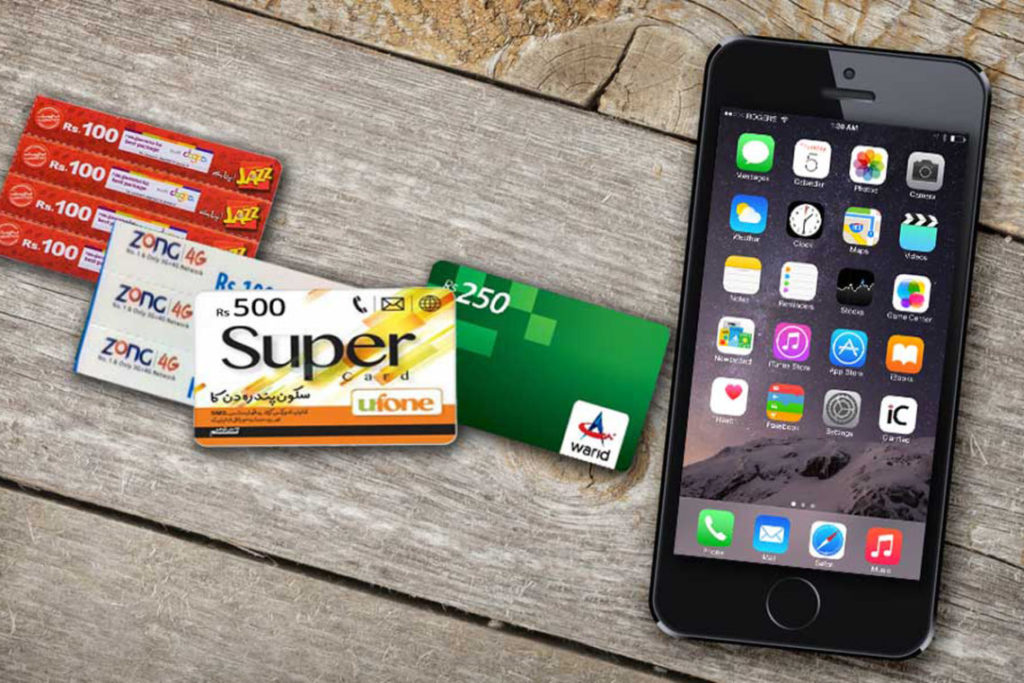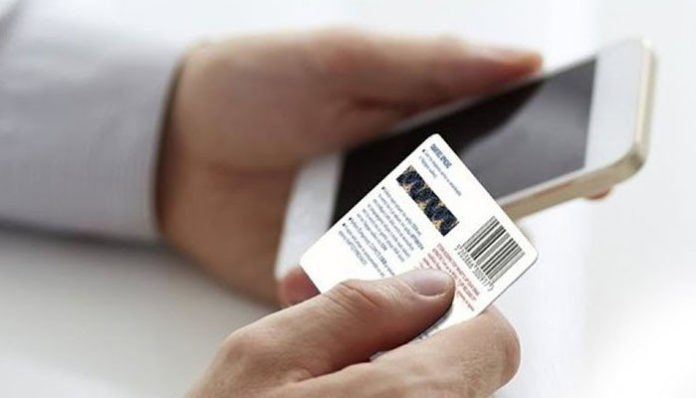During the last days of Ramadan 2018 the Supreme Court (SC) stopped FBR and Telco’s to charge any taxes from end consumer w.e.f. 14 the Jun 2018. Their Chief Justice main Saqib Nisar had taken Suo moto notice on the structure of the Eves in telecom industry.
The media called the decision ‘Eid before Eid’ since the decision was meant bring relief to the consumers Other than suspending taxes it stopped mobile companies from deducting 10% service charge that They had imposed on consumers. The former CJP also pondered over ways to refund telecom consumers who were not eligible to pay taxes but were charged withholding taxes.
The argument was that the end consumer gets approx. Rs.61 on a card load of Rs.100. The calculation being 12.5% deducted as adjustable withholding tax (government tax) and 10% deducted as service charges (telecom operators). With balance Rs.75.6 left in consumer account before making any call. 19% is deducted as provincial sales tax when consumer uses the load (e.g., call, message, data). This leaves Rs.61 in customer pocket to consume on telecom services
A modus operandi was defined on how the consumers will be refunded or passed on this relief, which was initially for 15 days but later the Chief Justice extended it indefinitely till a new mechanism was implemented.
There was big loss for the government where the suspension remained 10 months & 13 days, the question we have to ask is ‘whether the end consumers really got a relief’? This muted question has not been asked from the powerful telecom operators yet. Here’s a high-level comparison of the pre- and post-tax regimes on Rs.100 recharge. The calculation can be extrapolated on an estimated Rs.35 billion top ups across Pakistan on a monthly basis.
| Old Regime | New Regime | Overall per month | |
| WHT (1) | 12.50 | – | |
| Service Fee (Telco Revenue) (3) | 10.00 | – | |
| GST on Service Fee (1) | 1.90 | – | |
| Custom Balance | 75.60 | 100.00 | |
| GST on Balance Usage (1) | 14.36 | – | |
| Airtime available (2), (3) | 61.24 | 100.00 |
Mobile operators instead of reducing prices of their bundles, have passed on the benefit in different ways. For example, a mobile operator doubled the number of SMS in the bundles to show that the relief is passed on to the end consumers4. Can the average consumer actually consume even 2,000 SMS? The customer balance ultimately expires and automatically becomes revenue for the mobile operator.
Price of monthly usage card before the SC decision to suspend taxes was Rs.520 including taxes. This would make the price of the same package without taxes to be approx. Rs.370/- and provide a relief of Rs.150/ to the consumer. The relief of Rs.150/ was provided through additional 2,000 SMS and 200 MB of data. The relief was not provided in the shape of any on net or off net voice minutes. How meaningful is 2K additional SMS and 200 MB of more data for a customer instead of a relief of Rs.150 per card that the mobile operator bagged? So even when the end consumer has not used additional credit in SMS and data in his packages, the package is exhausted at the consumer is not passed on his due relief because the incentive offered by telecom operator is not useable for him.
In Summary
| (1) | Government Loss (All taxes) | 28.76 | – (100% Lower) | Loss: Rs 10 b p.m.1, 2 · |
| (2) | Customer G-” s | 61.24 | 100.00 (39% Higher) | |
| (3) | Mobile operator Gets | 71.24 | 100.00 (29% higher) | Gain: Rs 10 b p.m3 |

Such amazing innovations were introduced to circumvent the decision and take the maximum profit out of the CJP decision to provide relief to the end customers. While the decision taken in Jun 2018 cannot be undone, a forensic an audit be conducted by the Govt to validate that a real bene fit was passed on to the consumers as the SC had envisaged and they have used the ‘additional amount’ that was added as a relief for them.
In actual fact the ‘relief’ there has meant windfall profits to the mobile operators. The financial results of three mobile operators show a windfall revenue gains over last year, in comparison to a much smaller growth a year earlier.
One large operator has claimed a revenue growth of over 24% in its service revenues. However, when it comes to ARPU increase quarter on quarter, they show exactly 14% growth. Kindly refer to the last line of the table above, even Telenor shows nearly 14% of ARPU growth in 003 18 vs. 003 17. Kudos to all of these companies on brilliantly sugarcoating their results to portray that the revenue growth is due to their own efforts. This would certainly result in hefty bonuses for the senior managements, and hefty gifts to the legal counsels who found ways to stretch the windfall gains from 15 days to more than 10 months for telecom operators. The benefit was never passed on the consumers in its true spirit but instead it was all added as new ‘one time’ revenue for mobile operators. While certainly a clear answer is not possible without conducting a detailed evaluation however prima facie the answer is ‘NO’.
Pakistan definitely is one of the high taxed countries in telecom but shouldn’t the benefit be passed on to the consumers by returning this money to the consumers, rather than falling into the trap of ‘relief where the consumers got ‘unused gift’ and the mobile operators had windfall profits. The consumers need to be refunded the amount from the relief that they have not consumed. Moreover, now that the one-time relief is over, it would be interesting to see how the mobile operators are reacting to it.
With the ‘relief’ now over and the taxes reinstated, there is an expected drop in the revenues for mobile operators. Since all the mobile operators are foreign-owned and the local managements have to report back to their Group Headquarters, mobile operators will find ways to sustain revenue or minimize the drop as much as possible.
The mobile operators have gradually started to raise their prices without much attention by the end consumers. For example, in the last few weeks one operator increased its data package prices by 20% on Weekly package5 Another operator has increased prices of weekly internet package by 17%6
The consumer continues to be the last priority, irrespective of whether taxes were suspended or have been reinstated. He (or she) is lulled into complacency listening to “packages” of Indian songs.
Meaning by! Public at large has been cheated and hence this wind fall profit accrued is illegal and prima facie a crime falling well with in the definition of Section 9 (a) (IX) of National Accountability Ordinance 1999, which is enshrined as ‘if he commits the offence of cheating members of the public at large to deliver any property including money or valuable security to any person,’. This is a fit case for NAB to take cognizance but some hidden hands may come for rescue of Telco’s which NAB must be ready to parry.
End Notes
1Based on estimated PKR 35 billion new recharge by mobile consumers on per month basis
2bttps://propak jstani.pk/2019/04/25/ govt-telcos-lost-oyer-rs-103-bjl! ion-due to-supreme-courts-order/
3Mobile operator gain is that addition al amount of Rs.10 billion that will be available in mobile consumer accounts to spend on the telecom services
4Ufone changed its package to increase the number of SMS in their bundle.
5Jazz Weekly Premium Offer from Rs.110 to Rs.132 per 2GB. Weekly Mega Offer from Rs.160 to Rs.192.
6 https://mobltech.pk/yfone-jnternet packages-2018/ for 2018 prices. And http://www.ufone.com/data/tariff/prepaid/#f for current prices




